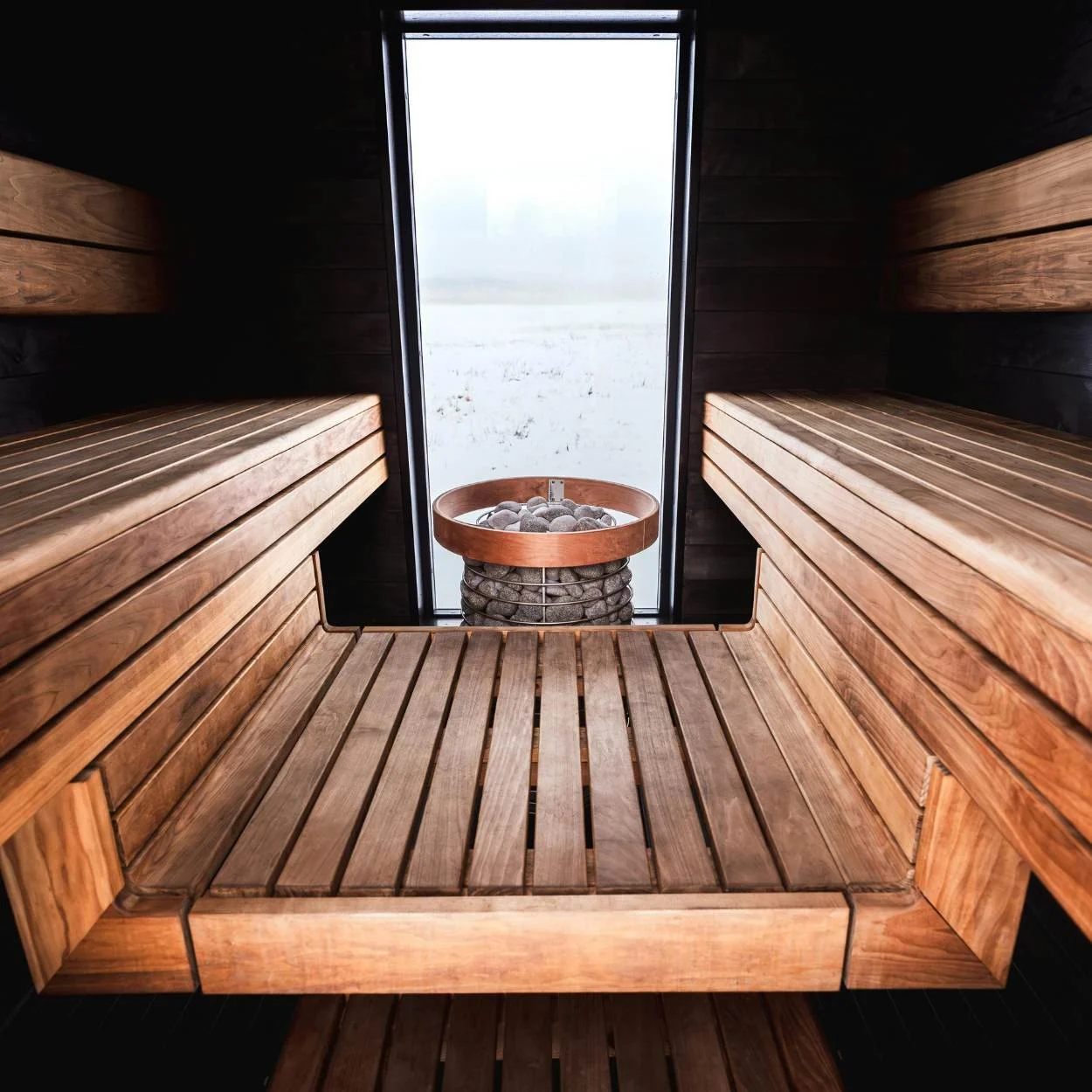Sauna and Cold Plunge: Ancient Practices, Modern Insights
Across cultures, people have long turned to heat and cold for healing.
Finnish saunas, Japanese onsens, Indigenous sweat lodges, and European bath traditions all share a rhythm of heating the body, cooling it down, and resting. Today, that cycle—sauna followed by a cold plunge—is enjoying renewed interest, not as a fad but as a practice now being studied for its effects on both body and mind.
How it works in the body
Heat
Sitting in the sauna raises heart rate, dilates blood vessels, and mimics the effects of moderate exercise. Over time, this can improve vascular function, lower blood pressure, and support heart health. The heat also stimulates the release of heat shock proteins, which help cells repair damage, and dynorphins, chemical messengers related to endorphins that initially create discomfort but increase the body’s sensitivity to pleasure and reward afterward.
Cold
Cold immersion does almost the opposite—constricting vessels, reducing inflammation, and giving a quick burst of alertness through norepinephrine release. It also activates brown fat, which helps regulate metabolism and blood sugar. Together, heat and cold form a kind of hormetic stress: brief, manageable challenges that leave the body more resilient once it recovers.
Effects on mood and resilience
On the emotional side, sauna and cold plunge each affect the nervous system in complementary ways. Sauna use has been linked to reductions in depressive symptoms, likely through its effects on inflammation, circulation, and serotonin signaling. Cold exposure, meanwhile, may lift mood by stimulating endorphins and catecholamines, explaining the “clear and energized” feeling many describe afterward. Dynorphins again play a role here, setting the stage for a stronger rebound in mood after discomfort.
When combined, the contrast of heat and cold seems to deepen these effects. The cycle improves circulation, helps muscles recover after exercise, supports sleep, and provides a potent sense of renewal. For many, it also fosters psychological resilience: practicing calm breathing through the intensity of heat or cold can translate into greater capacity to face everyday stress.
The emerging science
Large Finnish studies show regular sauna use is associated with reduced risk of cardiovascular disease and overall mortality.
Controlled trials suggest that whole-body heat sessions can relieve depressive symptoms.
Early research on cold immersion highlights metabolic and anti-inflammatory effects, with promising signals for mental health.
Systematic reviews note that combining hot and cold may reduce muscle soreness and aid recovery, though protocols and long-term outcomes need more study.
Practical and safe use
For most healthy adults, starting gently—short sauna sessions and brief cool dips—is both safe and effective. Staying hydrated, avoiding alcohol, and listening to the body’s cues are essential. People with unstable heart disease, pregnancy, or other medical conditions should check with a clinician before starting.
Integrative therapy in Manhattan
As modern research continues to validate the healing potential of ancient practices, sauna and cold plunge rituals are emerging as powerful tools to support both physical and mental well-being. When thoughtfully integrated, these cycles of heat, cold, and rest can complement therapeutic approaches aimed at building emotional resilience and nervous system regulation.
If you're interested in incorporating somatic practices like these into your mental health journey—or exploring how they might support treatments such as ketamine-assisted therapy in New York—we offer integrative, evidence-based therapy in NYC. Schedule a session learn more about our clinical approach to whole-person care.



